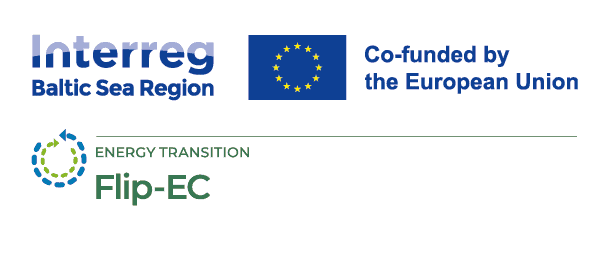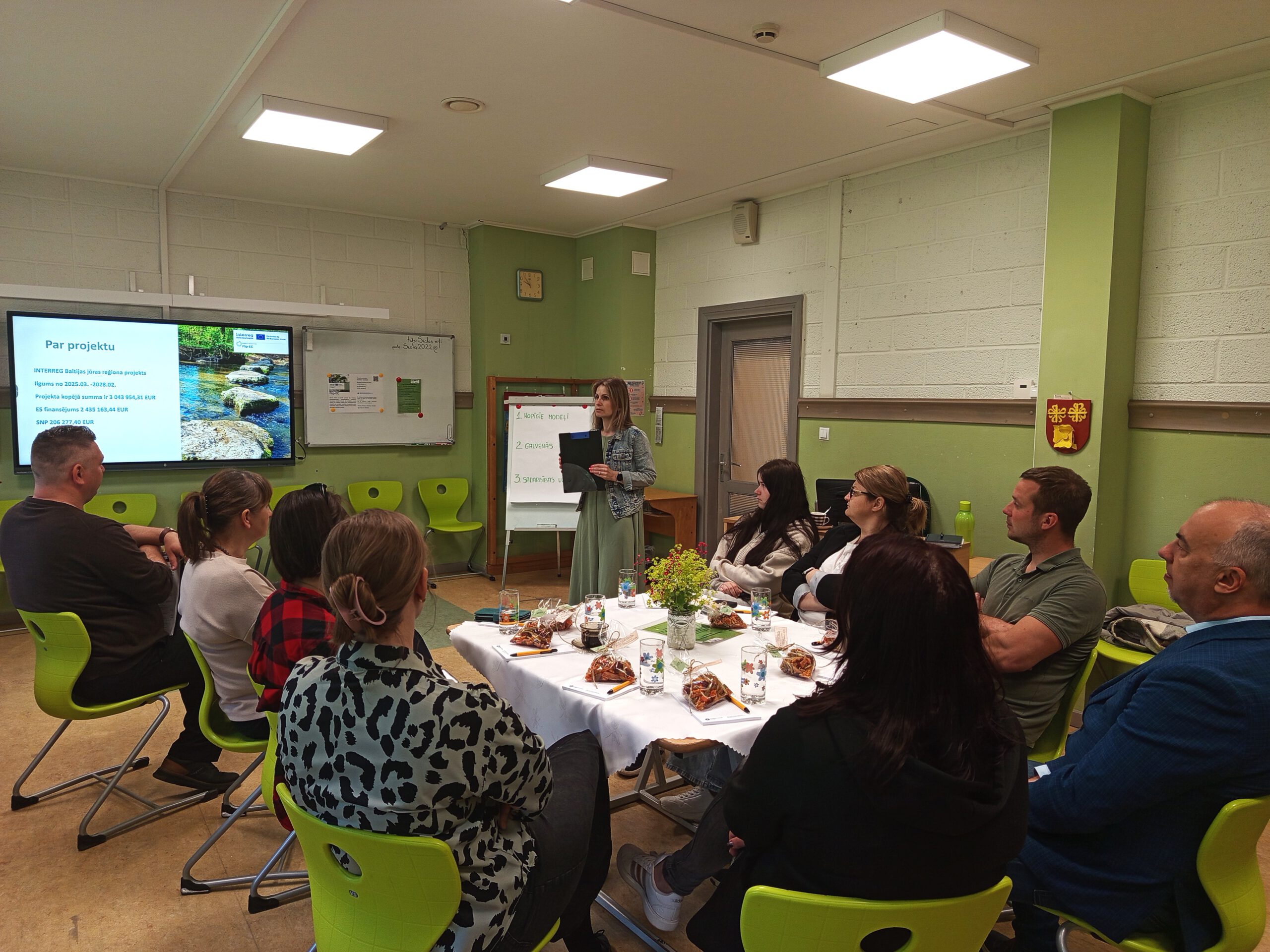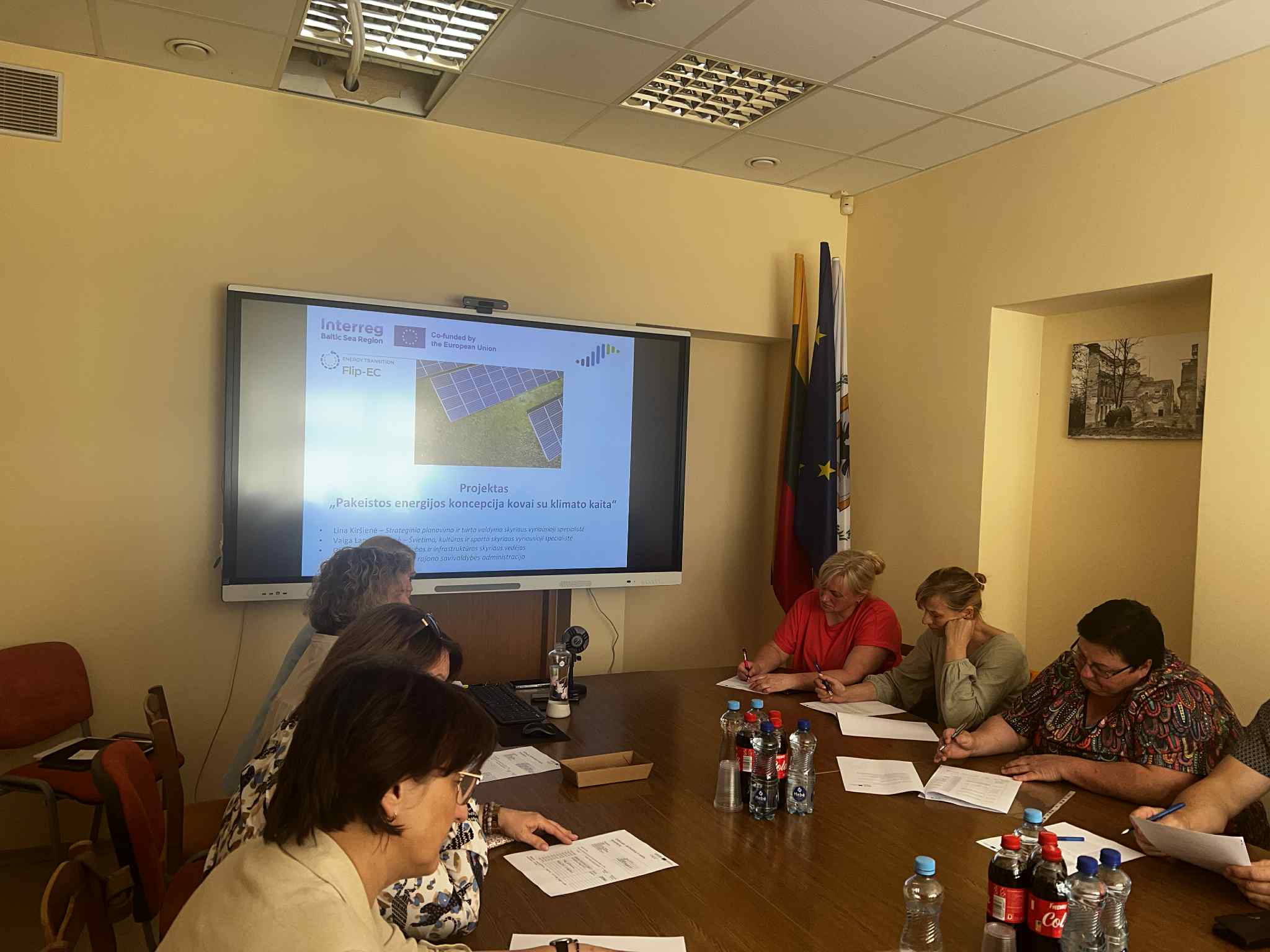
First Flip-EC focus groups and user journey workshops held in Latvia and Lithuania
04 July 2025
On 26th June 2025, the first stakeholder workshops of the Flip-EC project were held in Smiltene, Latvia, and Biržai, Lithuania. These events marked the launch of two key activities in Work Package 1: focus groups (GoA 1.1) and user journey workshops (GoA 1.2). Designed to explore energy-related behaviours and cooperation structures in public buildings, these formats bring together municipal staff and building users to contribute their perspectives and co-develop more effective energy efficiency practices.
Insights from Smiltene and Biržai
The workshops in Smiltene gathered a total of 19 participants from a wide range of professional backgrounds, including municipal officials, school representatives, youth workers, cultural institution staff, NGO members, and educators. Key topics included:
- Motivation of building users and technical staff, which was seen as a persistent challenge. Many still rely on traditional routines and lack incentives to engage with innovative energy-saving tools.
- The diversity of user needs and preferences, which makes it difficult to apply a one-size-fits-all approach to energy-related communication.
- The importance of tailored engagement strategies for different user groups — such as young people, seniors, and municipal staff.
Through persona development and routine mapping, participants explored how their daily interactions with buildings influence energy use, and where small, practical improvements could be made.
In Biržai, a total of 16 participants took part in the workshops, including students, janitors, and staff from educational institutions. The discussions highlighted three central topics:
- The importance of introducing energy-saving habits during school age, as early awareness helps build long-term behavioural change.
- The need for better communication and clearer role distribution between building managers and operational staff.
- Interest from janitors in practical guidance for changing everyday routines to support energy efficiency.
Participants expressed a strong willingness to stay connected and continue exchanging ideas throughout the course of the project.
The aim of the focus groups and user journey workshops
In the Flip-EC project, focus groups and user journey workshops are core methods used to investigate how public building users interact with energy systems and how cooperation on energy efficiency can be improved.
The focus groups are designed to evaluate the current situation at public authorities concerning communication, cooperation, and transparency in the implementation of energy efficiency measures. Bringing together a mix of stakeholders — from technical staff and municipal managers to school administrators — they provide insight into everyday practices, decision-making structures, and the obstacles that hinder active participation. The goal is to explore how different actors can work together more effectively to create a culture of shared responsibility for energy-saving.
The user journey workshops use an interactive design approach to map users’ daily routines within public buildings. Participants co-create fictional but realistic personas based on user types such as janitors, teachers, students, or municipal employees. They then trace typical energy-use scenarios, identifying inefficiencies. This helps to better understand the needs, and responsibilities of different users and how small interventions — such as improved instructions or shared routines — can support energy efficiency in day-to-day operations.
Together, these two activities form the backbone of Work Package 1, providing a practical, people-centered foundation for the development of Flip-EC training tools and pilot measures.
Looking ahead
The workshops in Biržai and Smiltene have offered meaningful insights into the social, structural, and behavioural aspects of energy efficiency in public buildings. While the challenges differ by role and region, a clear message emerged: improving energy performance requires both top-down commitment and bottom-up engagement.
The Flip-EC consortium looks forward to continuing the dialogue in the upcoming focus groups and user journey workshops in Germany, Poland, Estonia, and Denmark.







